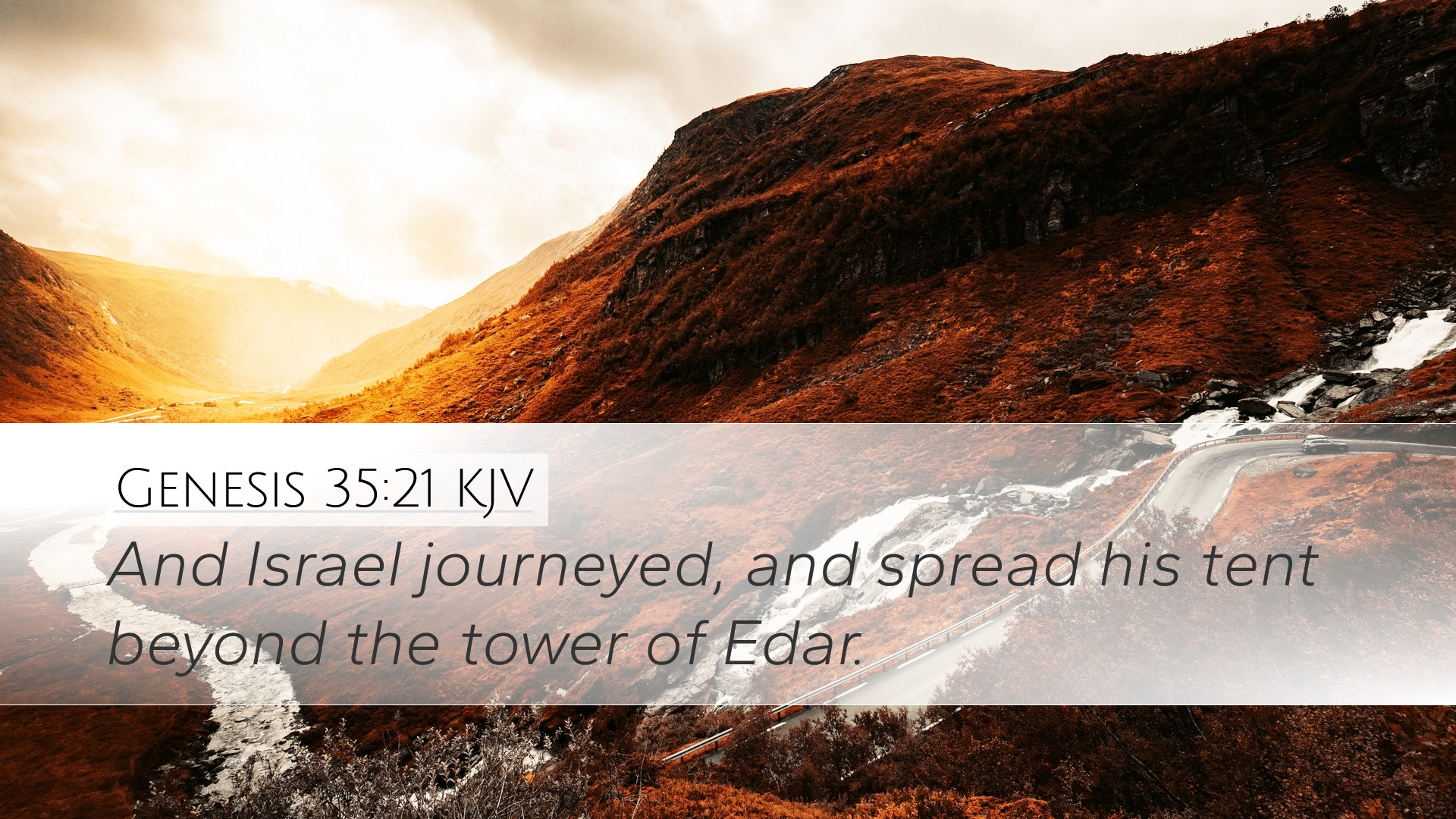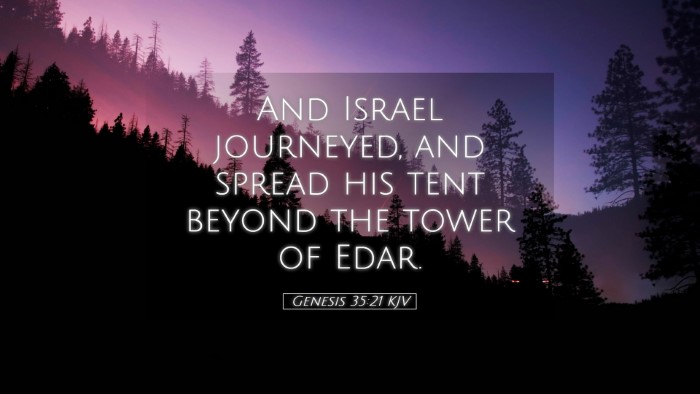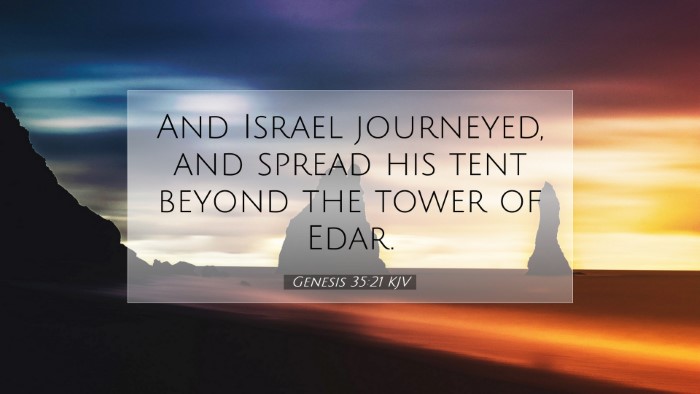Commentary on Genesis 35:21
Verse Reference: Genesis 35:21
Verse: "And Israel journeyed, and spread his tent beyond the tower of Edar."
Introduction
The text of Genesis 35:21 encapsulates a significant moment in the lives of the patriarch Jacob and his family. This verse serves as a transition point before the narrative unfolds concerning the events in the life of Joseph and the later establishment of Israel in Egypt. The implications of Jacob’s journey and the geographical references made here carry deep theological and symbolic meanings, reflecting the themes of exile, journey, and divine promise.
Contextual Background
This verse situates itself in the latter part of Jacob’s life, following God’s command to return to Bethel (Genesis 35:1). Having fulfilled this obligation, Jacob is on the move again, indicating both physical and spiritual journeys pivotal in the unfolding narrative of God’s covenant with Abraham, Isaac, and Jacob.
Insights from Public Domain Commentaries
Matthew Henry's Commentary
Henry highlights that this journey of Israel (Jacob) signifies the continuity of God’s promise despite the upheavals experienced in Jacob’s life. In particular, Henry notes:
- The strategic move beyond the "tower of Edar," which may symbolize a protective manner over his family. The tower could also represent a military post indicating Jacob's awareness of potential danger.
- The term "Israel" denotes not only Jacob as a historical figure but the emerging nation that would derive from him, indicating the weight of identity in this moment.
- Henry further emphasizes the importance of locations in biblical narratives, where each place Jacob travels carries a spiritual significance regarding God’s covenant.
Albert Barnes' Commentary
Barnes provides a detailed geographical analysis of the text and shares insights regarding the "tower of Edar." He posits that:
- This location was somewhere near Bethlehem, a significant city that would later emerge as the birthplace of David and, ultimately, Jesus Christ, underlining the prophetic implications of this moment.
- Barnes emphasizes that Jacob’s movement here is indicative of God's providential guidance, suggesting that despite being in the midst of turmoil, God's hand directs the steps of His chosen people.
- The act of pitching a tent not only shows Jacob's transient state but reiterates the understanding of believers as pilgrims on earth, continually moving toward God’s ultimate promise.
Adam Clarke's Commentary
Clarke offers a rich linguistic analysis of the text, drawing attention to the term "spread his tent." He discusses that:
- The concept of spreading one's tent can be associated with both rest and preparedness for the next journey, suggesting a duality of stability amid transition.
- Clarke points out that the phrase can symbolize the dwelling of God among His people, reflecting the future hope of an ultimate dwelling place in the Promised Land.
- He also notes the symbolic nature of "Eder" and its relevance—“Eder” meaning “flock,” further emphasizing Jacob's role as a shepherd of his family and prophetic symbolism of Christ as the Good Shepherd.
Theological Themes
This seemingly simple verse is rich with theological themes that are meaningful for pastors, students, and scholars. Key themes include:
- Divine Guidance: Jacob's journey underscores God's sovereignty in leading His people according to His divine plan.
- Identity and Transformation: The use of "Israel" over "Jacob" signifies a transformed identity, aligning with the theme of covenant and family legacy.
- Journey and Pilgrimage: The imagery of a tent points to the transient nature of human existence compared to the promise of eternal dwelling with God, encouraging believers to view their lives as journeys towards fulfillment in Christ.
Application for Today
This text continues to resonate in the lives of contemporary believers. As Jacob journeys beyond the tower of Edar, so too are Christians called to embark on their own journeys of faith. There are lessons in movement, dependence on God's guidance, and the importance of recognizing the spiritual significance of the places and moments in our lives.
Key Applications:
- Emphasize the necessity of seeking God’s will in every season of life, much like Jacob did after hearing from God.
- Encourage believers to understand their identity in Christ (as new creations) and how it impacts their daily lives.
- Recognize the importance of community and pilgrimage as they follow God’s leading, moving towards a greater understanding of His purpose for their lives.
Conclusion
In conclusion, Genesis 35:21, although brief, encapsulates profound truths essential for understanding faith and divine guidance. By examining our history through the lens of Jacob’s experiences, we gain valuable perspectives on our own spiritual journeys and the overarching narrative of redemption that includes all God’s people.


